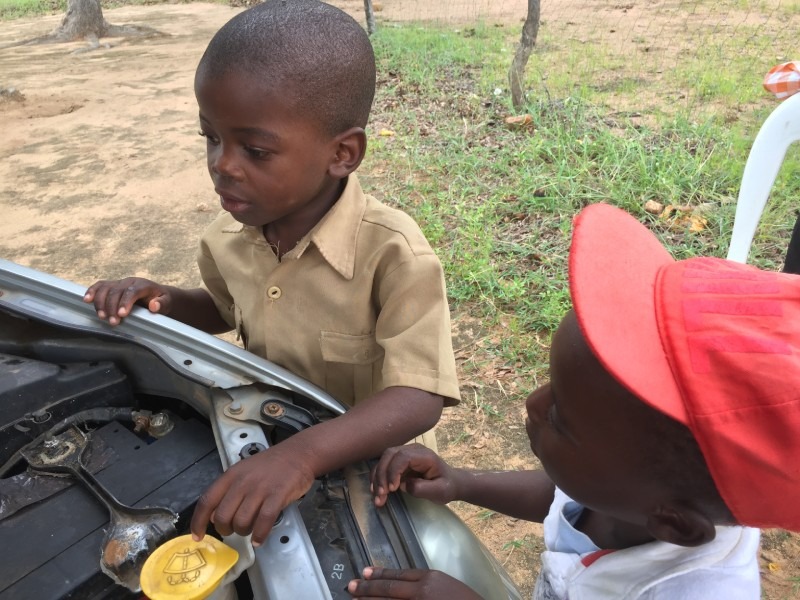
Poverty is the major threat to peace and justice in our community. Unfortunately, this is deep, structural poverty that comes as a result of colonialism, neo-colonialism and internalized external oppression from our leaders. Amos 8, verse 6 prophetically puts it this way: “We can sell worthless wheat at a high price. We’ll find someone poor who can’t pay his debts, not even the price of a pair of sandals, and we’ll buy him as a slave.” Therefore, since ancient days, the struggle of the poor has been real.
Zimbabwe is a very beautiful country of 14 million people in Southern Africa. Victoria Falls, the world’s biggest waterfall and one of the world’s great wonders, is located here. Zimbabwe has a good climate, rich agricultural soil, rich mineral resources and God-fearing, culturally rich, peace loving citizens. Zimbabwe is also the most literate country in Africa. Yet despite all of this, our people are extremely poor. Thousands of reasons are mentioned as the source of this abject poverty. I have realized that lack of will power, dedication and commitment among ourselves sinks us deeper into poverty – mostly mental poverty.
The economic situation during the last twenty years has been chaotic. The situation improved during 2009 – 2013, but this was short-lived. Zimbabwe suffered one of the worst periods of inflation in our country’s history, and today our inflation is second only to Venezuela – but we are not at war. We have become poor to such an extent that there is no electricity in urban areas for up to 20 hours a day. Many townships no longer have access to water. If they get water, it is coated with sewage and unsafe to drink. It is this water that we use to bathe, wash clothes and dishes which puts all urban populations at risk of water borne diseases. This water crisis and the poor urban refuse systems are huge contributors to cholera and typhoid outbreaks. Everything also moves slowly in Zimbabwe. We mainly use mobile money which is slow due to slow networks. Fuel is mostly unavailable, and if it’s available one spends a long time in the queue. Prices of basic commodities continue to rise, which sink the poor deeper into poverty.
As a result of the strong cultural and moral fabric of Ubuntu (a Southern African cultural concept of helping each other) vulnerable people take care of each other through table banking, community policing, community gardens and livestock rearing. Community responsibility is so huge that a penniless traveler can travel from point A to B in a public service vehicle if s/he asks politely for help. Despite an average Zimbabwean living on less than ten cents a day, no one goes hungry as there is always a hand to help. Despite this good will, the pressure now to survive is intense. Thousands are dying of stress related illnesses. Prostitution, drug abuse, theft, domestic violence and corruption are on the rise.
Our Intervention
Trees of Peace Africa has been leading conflict transformation training to marginalized groups for many years through the “Global Mentoring Peace Project”. We recently partnered with International Ministries through the “Student Tuition Expense Program” (STEP) Children of Africa to provide school fees and uniforms, stationery, and peace training to village children and young people in Zimbabwe and Zambia. This education and training helps prevent drug abuse, school dropouts, and HIV /AIDS. We have also supported emerging young leaders who lead, monitor, evaluate, and supervise STEP at a local level.
Additionally, we are promoting goat and chicken projects which provide basic life skills to villagers such as gardening, livestock rearing and tailoring. We intend to have our own tailoring/clothes making school so that children can learn to make their own uniforms and sell some clothes. Please pray for us. We believe that the fight against poverty is a fight against perennial dependency.
Future Projections
We are in the process of promoting a solar project called Light Up Zimbabwe. We hope to provide basic solar lights, panels, inverters and batteries. These tools would support midwives when they deliver babies, school children when they want to read, small business people, etc. Our main goal is to make sure that all vulnerable groups have access to information, and information can only come when one has access to electricity. The solar systems will also pump clean drinking water into our community. It is our belief that the fight for peace is a fight for dignity. Trees of Peace Africa fights for human dignity. Children of Peace will never be the same if they have a light to read their books.
Gratitude
All our efforts would be in vain if it wasn’t for those who give generously. Tatenda zvikuru (thank you so much). Special gratitude goes to Sharon Buttry whom we call Mama Africa for her love for Children of Peace in Africa. Thank you also to my friends, IIldeophonse Niyokindi from Burundi and Sango Shila from Democratic Republic of Congo, who are working with STEP Burundi and STEP DR Congo respectively. Our mentor Daniel Buttry has always been our Barnabas: son of encouragement. All your support made us STEP into steps of faith.
Lance and Christina Muteyo